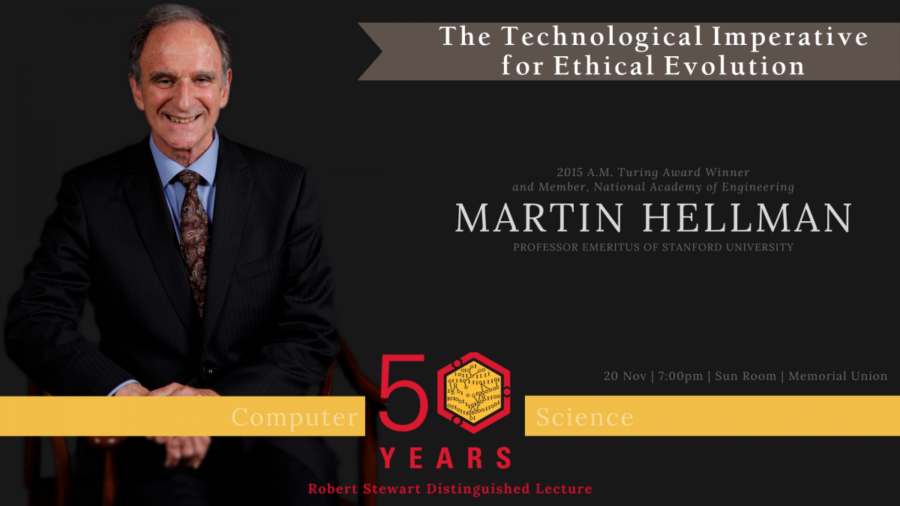Retired Stanford professor to speak about ethics and technological development
Martin Hellman, a retired professor of electrical engineering at Stanford University and a member of the Federation of American Scientists organization.
November 19, 2019
The ethics and risks of technological development within the U.S. government will be discussed at 7 p.m. Wednesday in the Sun Room of the Memorial Union.
Martin Hellman, professor emeritus of electrical engineering at Stanford University and a member of the Federation of American Scientists (FAS), is set to deliver a lecture titled “The Technological Imperative for Ethical Evolution.”
This is a part of the Robert Stewart Distinguished Lecture series from the Iowa State department of computer science. It was established by Long Nguyen, an Iowa State alumnus with a doctorate in computer science.
Hellman is currently an adjunct senior fellow for nuclear risk for the FAS, with his scientific interest coming from his own research involving risk analysis to any potential failures of preventing nuclear disasters.
In 1945, Manhattan Project scientists, the developers of the first atomic bomb, founded the FAS to reduce the amount of nuclear weapons, prevent the use of biological and chemical warfare and promote high standards for nuclear safety, according to their website.
The lecture will cover areas of the potential risks associated with the development of technology regarding the public policy leaders.
“With the nation’s attention focused on Iowa right now, Iowans have a unique opportunity to raise questions that have the potential to reach the national consciousness,” Hellman said in a press release. “And with neither political party recognizing the mistaken assumptions about national security that those questions address, this is a nonpartisan and even an apolitical message.”
Hellman will speak about national and global security regarding nuclear weapons, cyberattacks, terrorisms and environmental crises. Hellman will also speak to Iowa State students about shifting their view about global issues.
Hellman and Former Vice President and Chief Security Officer for Sun Microsystems Whit Diffie invented a public key cryptography, which is used for conducting secure digital transactions and as a tool for cybersecurity.
The two received a joint A.M. Turing Award and one million dollar prize from the Association of Computing Machinery for the invention, and Ralph Merkle, retired chair of nanotechnology at Singularity University, was credited with contribution to the technology.







